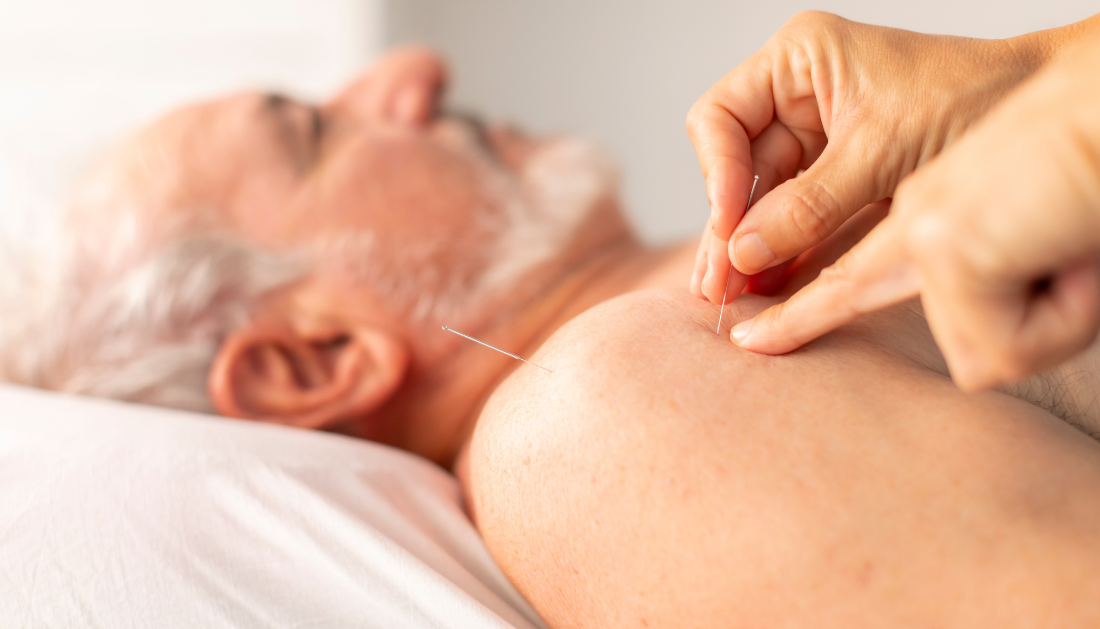

Researchers examined whether acupuncture, which was previously used as an alternative therapy in addition to other drugs for Parkinson’s disease, enhances the quality of sleep for patients with Parkinson’s disease in a new study that was published in JAMA Network Open.
Since the condition is known to advance more quickly when people don’t get enough sleep, this study is important for patient management.
Context
Parkinson’s disease is a neurological condition with a complicated pathogenesis that is typified by bradykinesia, sluggish movement, tremors during rest, and postural instability.
The progression of the disease also leads to the appearance and dominance of non-motor symptoms, which worsen quality of life and increase disability.
Reduced sleep quality is one of the most common non-motor symptoms of Parkinson’s disease, and it happens as the condition progresses as well as as a side effect of the drugs used to treat it.
Additionally, studies have shown a connection between sleep deprivation and faster gait deterioration and dyskinesia in Parkinson’s disease patients, as well as an accelerated progression of symptoms related to mood and cognition.
Concerning the Study
In the current study, acupuncture was tested as a safe and effective way to help Parkinson’s patients have better sleep in a randomized, double-blind clinical experiment.
In the trial, the effects of fake and actual acupuncture were contrasted. It assessed the gains in variables like anxiety, symptoms related to the motor and non-motor domains, sleep quality, and health-related quality of life.
While there aren’t many choices for treating sleep disturbances in Parkinson’s disease patients, those that exist focus on optimizing dopaminergic medication, particularly if sleep difficulties are exacerbated by non-motor symptoms.
In addition, even while benzodiazepines and other antipsychotics and antidepressants work well, they frequently have negative side effects such as imbalance, sedation, and daytime sleepiness.
Acupuncture is a long-standing traditional therapy used in China that entails the insertion of tiny needles into acupoints, also known as trigger points. As an adjuvant therapy, it has been used with drugs for Parkinson’s disease.
Patients in the current study were considered for inclusion if they could tolerate acupuncture, had a diagnosis of idiopathic Parkinson’s disease, were between the ages of 30 and 80, reported moderate to severe difficulties with their sleep quality, and had been taking their medications for the condition regularly for the previous month.
The participants were randomized into the actual acupuncture and sham acupuncture groups before the baseline evaluations. In addition, several of the drawbacks of the current fake acupuncture devices were addressed by using an additional device.
This supplemental tool could be used to modify the acupuncture’s direction and angle while simulating the feeling of obstruction during needle insertion.
At the same acupuncture sites, each participant got advice on good sleep hygiene in addition to actual or fake acupuncture. For four weeks, the acupuncture was done three times a week.
The change in the Parkinson’s Disease Sleep Scale (PDSS) score at the conclusion of the four-week and the eighth-week follow-up was the main result that the study looked at.
Eight elements of nighttime sleep in patients with Parkinson’s disease were assessed using this 15-item scoring scale: general quality of sleep, nocturnal restlessness, insomnia, nocturia, nocturnal psychosis, sleep refreshment, daytime sleepiness, and nocturnal motor symptoms.
Outcomes
According to the study, acupuncture greatly enhanced the quality of sleep and overall well-being of people with Parkinson’s disease.
After four weeks of therapy, the participants in the genuine acupuncture group had improved by 29.65 points on the PDSS, and these gains persisted until the eighth week of follow-up.
The positive benefits of sham acupuncture on sleep quality persisted until the eight-week follow-up, even though patients in the sham acupuncture group also displayed a 10.47-point increase in the PDSS score after the treatment period.
The researchers concluded that although sham acupuncture may temporarily improve individuals with Parkinson’s disease’s quality of sleep, the therapeutic benefits are not as strong as those of actual acupuncture.
Patients in the actual acupuncture group had improvements in all categories of the PDSS, including quality of life-related to health and both motor and non-motor complaints. There were no significant side effects noted.
Severe tremors were experienced by several of the patients, which were thought to be brought on by procedure-related anxiety. But soon after the needle was put, it was discovered that the tremors had stopped.
In conclusion
Overall, the results indicated that acupuncture significantly improved the quality of nocturnal sleep as well as the overall quality of life for Parkinson’s disease patients.
The treatment was successful and safe, and the quality of the sleep was improved for a long time.
For more information: Acupuncture and Sleep Quality Among Patients With Parkinson Disease, JAMA Network Open, doi:10.1001/jamanetworkopen.2024.17862
more recommended stories
 CTNNB1 Syndrome Study Explores Beta-Catenin Defects
CTNNB1 Syndrome Study Explores Beta-Catenin DefectsKey Takeaways Researchers in Spain are.
 Tuberculosis Breakthrough with Experimental Antibiotics
Tuberculosis Breakthrough with Experimental AntibioticsKey Takeaways Experimental antibiotics disrupt a.
 National Healthy Longevity Trial Receives Federal Support
National Healthy Longevity Trial Receives Federal SupportKey Summary Up to $38 million.
 Red Blood Cells Improve Glucose Tolerance Under Hypoxia
Red Blood Cells Improve Glucose Tolerance Under HypoxiaKey Takeaways for Clinicians Chronic hypoxia.
 Nanoplastics in Brain Tissue and Neurological Risk
Nanoplastics in Brain Tissue and Neurological RiskKey Takeaways for HCPs Nanoplastics are.
 AI Predicts Chronic GVHD Risk After Stem Cell Transplant
AI Predicts Chronic GVHD Risk After Stem Cell TransplantKey Takeaways A new AI-driven tool,.
 Red Meat Consumption Linked to Higher Diabetes Odds
Red Meat Consumption Linked to Higher Diabetes OddsKey Takeaways Higher intake of total,.
 Pediatric Crohn’s Disease Microbial Signature Identified
Pediatric Crohn’s Disease Microbial Signature IdentifiedKey Points at a Glance NYU.
 Nanovaccine Design Boosts Immune Attack on HPV Tumors
Nanovaccine Design Boosts Immune Attack on HPV TumorsKey Highlights Reconfiguring peptide orientation significantly.
 High-Fat Diets Cause Damage to Metabolic Health
High-Fat Diets Cause Damage to Metabolic HealthKey Points Takeaways High-fat and ketogenic.

Leave a Comment